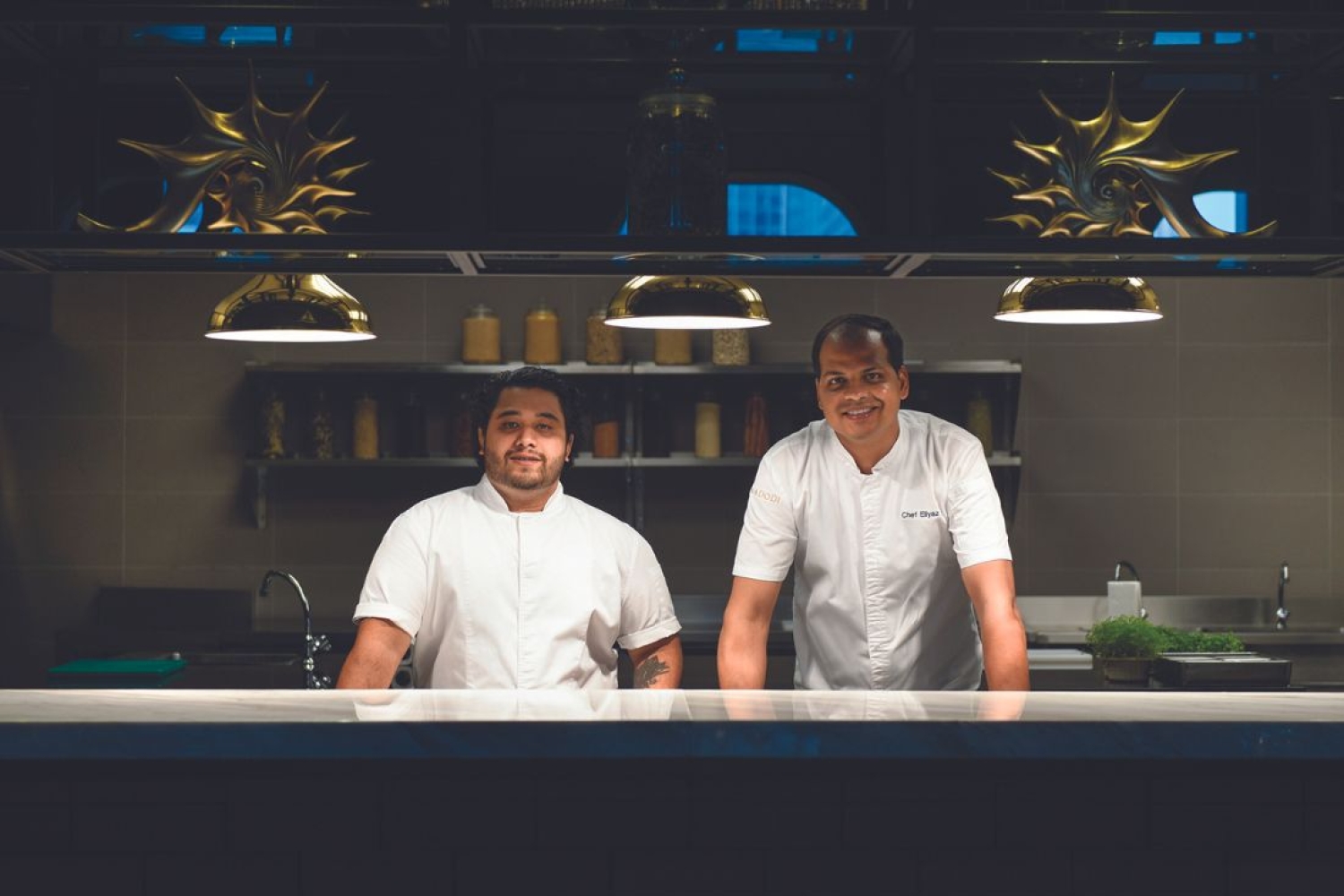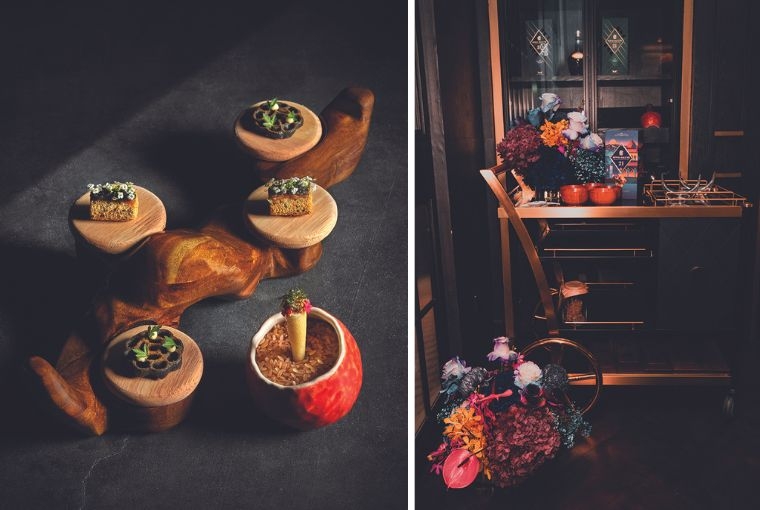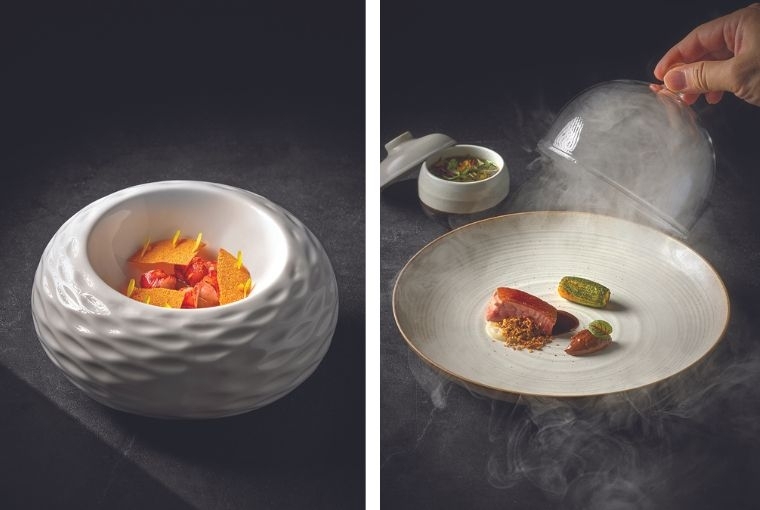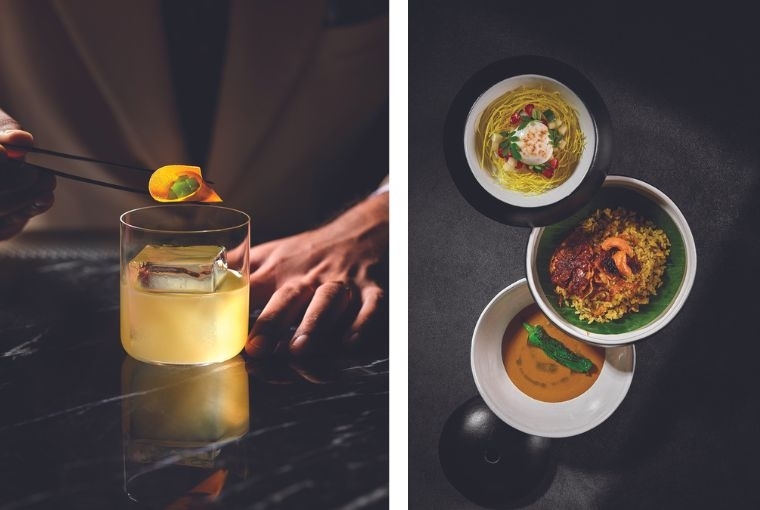

Malaysia, country of nomads. Where a large majority of the population, and what is considered to be Malaysian cuisine for that matter, has come to embrace their Malay heritage with roots from elsewhere. With such a diverse sense of self and the sustenance consumed, there’s no surprise that Malay cuisine has many ethnically driven subsects.
The vast category of Nyonya dishes are influenced by the Chinese nomads and their new found Malaysian home, many of them in the form of steaming hot bowls of noodles with rich and creamy broths like Curry Mee. Much of the itinerant presence is due in part to western colonization so, of course, some of these Malaysian sub-categories, like Kristang, feature the influence of their Portuguese invaders. In the Eastern part of the country in Kelantan and Terengganu, Thai techniques add to the Malay make-up.
Naturally, the fabric of this Nomadic society would not be complete without the contribution of the British intrusion, shipping out large portions of the population from the Indian diaspora, specifically from the south in areas like Tamil Nadu and Sri Lanka. Today, Malaysia boasts the fifth largest population of Indians outside of India and its cuisine encompasses a generous contribution of spiced dishes inspired by the Sub-Continent including, but not limited to, variations of biryani and the infamous Mamak dish, Roti Canai.
While you can experience the flavors of desi khana from hawkers all over the capital city of Kuala Lumpur and in heavily Indian-populated areas like Brickfields, the team from Nadodi set out to present another side to the cuisine.
Nadodi in Malayalam—the native tongue of Tamil Nadu, NOT Malaysia—quite literally means nomad. Naturally inherent to the cuisine of Malaysia but also, quintessentially, innate to the cast of players that make up their food, beverage, and service teams. A fine dining experience, featuring a seasonal course menu, the mission at Nadodi is to present the history of food and drink of Kerala, Tamil Nadu, and Sri Lanka and how its people and its cuisines made their relocation prevalent in the land of Malaysia. All while delivering a high-end experience worthy of acknowledgment from the Michelin Guide.

While certainly not new to the KL dining scene, opening their original location over six years ago, the team at Nadodi embarked on a new era of their experience, recently having relocated to the Four Seasons Kuala Lumpur. With its new postal code comes additional contemporary additions, including a recently appointed Executive Chef, Mohammed Eliyaz, and a sister cock- tail bar concept, Ver, at the helm of bar manager Apurav Bhatia. As the concept name suggests, these two nomads join the team from their home bases of Hyderabad and Mumbai, respectively.
Of course, remnants of the old Nadodi remain, with many team members from the original opening team still serving posts at this Cinnamon Group outlet, including the recently appointed Chef De Cuisine, Yavhin Siriwardhana. Unlike his leadership counterparts, Chef Yavhin is Malaysian-born, arguably second generation, if not first and half generation Malay with his mother also born in the country from immigrant parents from Kallisery, a town along the water in Kerala, and a Senalese father who only moved over in his adult years. It could be said, Chef Yavhin is Nadodi, not necessarily the nomad but the concept itself being part Keralite, part Senalese, and, of course, part Malaysian. “When I applied for the job I thought this is what I ate growing up, to be honest. I thought man, this is me! It fit, it just fit.”

With the trio of culture as part of his identity, Yavhin grew up eating home cooked versions of the elevated menu now served at Nadodi. His growth within the restaurant admittingly, “took some getting used to this new position. I started from the bottom, the meat station, and worked my way up to Chef de Cuisine.” As his role increased, so did his self assigned responsibility to honor all of the cuisines presented on the menu, Malaysian included.
“We’ve always emphasized how Kerala, Tamil Nadu, and Sri Lanka brought in the cuisine but we cannot forget that the local cuisine and the ingredients are also influencing these [Malaysian] cuisines. I think that’s my part in this, my responsibility. At the same time it’s about educating the Malaysian guests on what South Indian cuisine actually is. I don’t think people in Malaysia really know what the food is really about because of all the mixture [of the cuisines] that’s been going on for years.”

Take the interpretation of the humble Tamil-style Vadai from the new menu where the traditional batter made with black daal takes on a new form in the shape of two thin wafers. Plated the peanut chutney and a Sri Lankan rendition of white bait fish sambal and garnished with sakura ebi, the dish is certainly elevated. Although this course presents a modern rendition, the team thoughtfully explains the preparation of each layer, enlightening the guest on the traditional process executed for each element. Unsurprisingly, the wafer version of vadai maintains the nostalgic flavors of urad daal.
Even for Eliyaz, whose personal roots do not coincide with the statehood of Nadodi’s concept, nostalgia comes into play when dreaming up dishes for the menu, “I come from the southern part of Andrah, which is near to Tamil Nadu so a lot of that flavor stays the same. We connect a lot on the cuisine,” and, of course, on the landscape.
Words Gauri Sarin
Date 23.12.2023